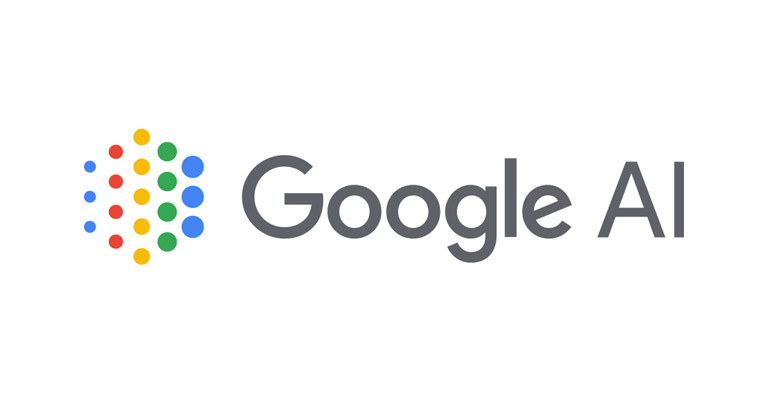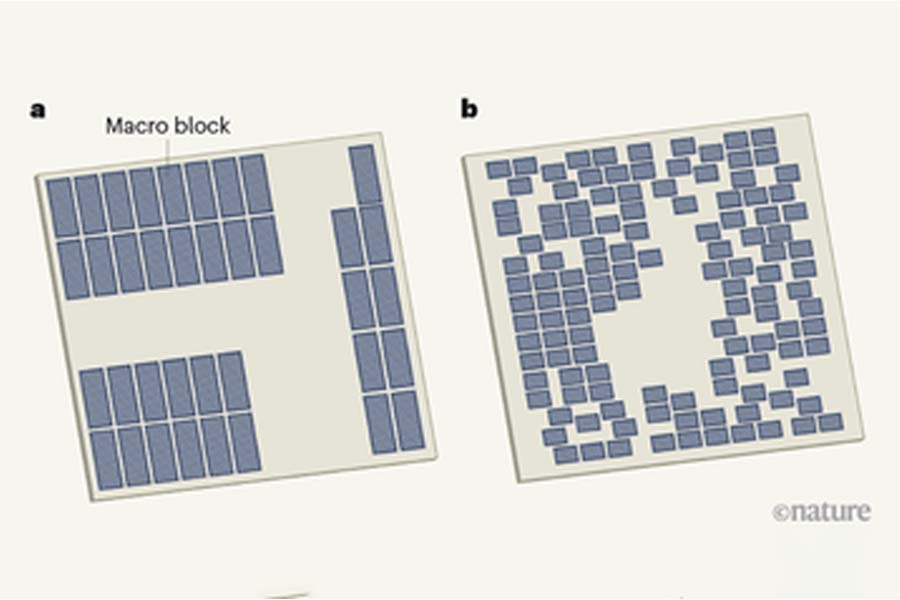
Google has now shifted to the artificial intelligence (AI) approach for chip design, claiming that it can design silicons quicker than the traditional human approach. On top of faster chip design, this technique will help save space and power while improving performance.
Google AI chip design:
The news surfaced in this week’s publication of Nature, where they detailed the use of graph placement for chip “floorplanning”. Google has been developing chips using machine learning for years. But this time, the study appears to be rather effective.
The new machine learning technique will be implemented in the next iteration of Google’s own TPU (tensor processing unit) AI chip. Likewise, the chip with such a design will offer better AI computation.
Better chips than humans
The chip construction process includes several tactics and components, but creating a clear floor plan is a difficult endeavor. According to the tech giant, it trained a reinforcement learning algorithm with 10,000 different chip floorplans in order to improve efficiency and performance.
In just 6 hours, the AI was able to design chip “floorplans” better than human engineers could after months of labor.
“Our method has been used in production to design the next generation of Google TPU,” wrote the authors of the paper, led by Google’s co-heads of machine learning for systems, Azalia Mirhoseini and Anna Goldie.

- Also Read:
A chip’s floorplan is basically a representation of where components like CPUs, GPUs, memory are located on the silicon die. Their placement on the board is critical since it influences the chip’s power consumption and speed.
According to Google engineers, this has “major implications” for the chip industry. It should allow firms to explore the architectural space for new designs more rapidly and simply tailor processors for specific workloads.
AI has already demonstrated its ability to overcome humans in complicated games such as Go and chess. While gaming, algorithms are well trained to make the right move and win the game. Similarly, in chip design, the system knows how to make it as computationally efficient as possible.
Final words
The new advancement made by Google is notable as the company will be using its machine learning technology in next-generation TPUs. Not just Google, but Nvidia is also seeking to use machine learning to speed up chip design. For now, all we can say is that AI has begun to steadily revolutionize the semiconductor industry. And we can’t wait to see where this goes.
- Meanwhile, check out our review of Lenovo IdeaPad Flex 5 (2021).







![Best Gaming Laptops in Nepal Under Rs. 250,000 (रु 2.5 Lakhs) [2025] Best Gaming Laptops Under 2.5 lakhs in Nepal [Feb 2025 Update]](https://cdn.gadgetbytenepal.com/wp-content/uploads/2025/02/Best-Gaming-Laptops-Under-2.5-lakhs-in-Nepal-Feb-2025-Update.jpg)
![Best Gaming Laptops in Nepal Under Rs. 120,000 (रु 1.2 Lakhs) [2025] Best Budget Gaming Laptops Under Rs 120000 in Nepal 2025 Update](https://cdn.gadgetbytenepal.com/wp-content/uploads/2025/05/Best-Budget-Gaming-Laptops-Under-Rs-120000-in-Nepal-2024-Update.jpg)
![Best Laptops Under Rs. 80,000 in Nepal [2025] Best Laptops Under 80,000 in Nepal March 2025 Update](https://cdn.gadgetbytenepal.com/wp-content/uploads/2025/03/Best-Laptops-Under-80000-in-Nepal-March-2025-Update.jpg)
![Best Gaming Laptops in Nepal Under Rs. 200,000 (रु 2 Lakhs) [2025] Best gaming lapotp under 2 lakhs Nepal Feb 2025](https://cdn.gadgetbytenepal.com/wp-content/uploads/2025/01/Best-Gaming-Laptops-Under-2-Lakh-Nepal-Feb-2025-Update.jpg)

![Best Mobile Phones Under Rs. 15,000 in Nepal [Updated 2025] Best Phones Under 15000 in Nepal 2024 Budget Smartphones Cheap Affordable](https://cdn.gadgetbytenepal.com/wp-content/uploads/2024/03/Best-Phones-Under-15000-in-Nepal-2024.jpg)
![Best Mobile Phones Under Rs. 20,000 in Nepal [Updated] Best Mobile Phones Under NPR 20000 in Nepal 2023 Updated Samsung Xiaomi Redmi POCO Realme Narzo Benco](https://cdn.gadgetbytenepal.com/wp-content/uploads/2024/01/Best-Phones-Under-20000-in-Nepal-2024.jpg)
![Best Mobile Phones Under Rs. 30,000 in Nepal [Updated 2025] Best Phones Under 30000 in Nepal](https://cdn.gadgetbytenepal.com/wp-content/uploads/2025/01/Best-Phones-Under-30000-in-Nepal.jpg)
![Best Mobile Phones Under Rs. 40,000 in Nepal [Updated 2025] Best Phones Under 40000 in Nepal 2024 Smartphones Mobile Midrange](https://cdn.gadgetbytenepal.com/wp-content/uploads/2024/02/Best-Phones-Under-40000-in-Nepal-2024.jpg)
![Best Mobile Phones Under Rs. 50,000 in Nepal [Updated 2025] Best Phones Under 50000 in Nepal](https://cdn.gadgetbytenepal.com/wp-content/uploads/2025/01/Best-Phones-Under-50000-in-Nepal.jpg)
![Best Flagship Smartphones To Buy In Nepal [Updated] Best flagship phone 2025](https://cdn.gadgetbytenepal.com/wp-content/uploads/2024/07/Best-Flagship-Phones-who-is-it-ft-1.jpg)